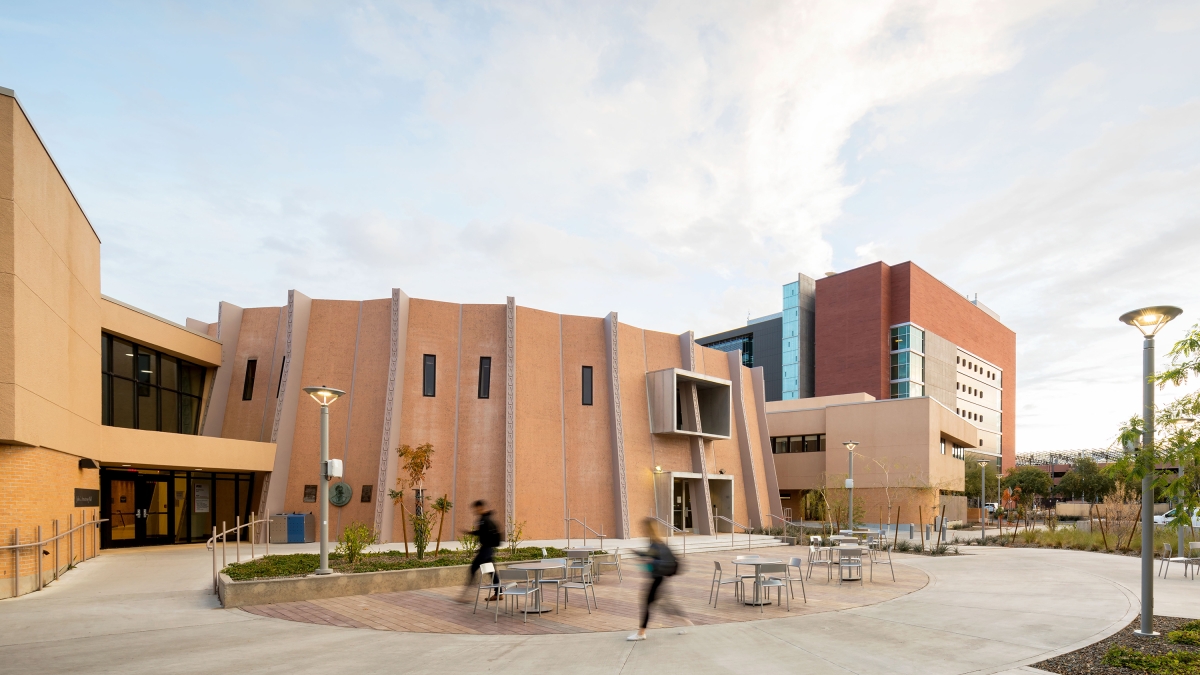Phi Beta Kappa celebrates academic excellence in liberal arts and sciences at ASU

The 45th annual Phi Beta Kappa Induction Ceremony for ASU’s Beta of Arizona will be held April 30 at Armstrong Hall on the Tempe campus.
Taryn O’Boyle is a graduating senior in the biochemistry program at The College of Liberal Arts and Sciences' School of Molecular Sciences and a student in Barrett, The Honors College at Arizona State University.
Between completing several stints in research labs and adding to an already-rigorous course load by claiming a math minor her junior year, she has explored a range of opportunities during her time at ASU.
When she was invited to join Phi Beta Kappa, the oldest academic honor society in the country, she saw it as a way to encapsulate the passion for knowledge she’d spent years fostering at The College.
“I’ve been invited to join a few honor societies over the years,” she said. “But after realizing the Phi Beta Kappa motto has to do with a love of learning, I really thought, ‘This is something I want to be a part of.’”
Founded by five students at the College of William & Mary in December 1776, Phi Beta Kappa was born out of the same educational drive O’Boyle exemplifies today.
On the heels of the signing of the U.S. Declaration of Independence earlier that year, the society’s founders sought to help forge new cultural and political institutions to fit the dawn of the new nation. Rooted in scientific inquiry, creative endeavor and the rigorous pursuit of knowledge, their motto was simple — "The love of learning is the guide of life."
Hundreds of similar groups have since taken form, but Phi Beta Kappa continues to distinguish itself among them.
The prestigious honor society now boasts more than 500,000 global members, including 17 U.S. presidents, 40 Supreme Court justices and more than 140 Nobel laureates.
As one of 290 U.S. higher education institutions with society chapters today, ASU selects students yearly for an invitation-only membership restricted to junior and senior students who fulfill a stringent set of requirements.
Invitees must have completed at least 90 credits within specific fields of the natural sciences, social sciences or humanities and are required to have taken two years of foreign language classes. They also maintain certain GPAs and demonstrate academic excellence in their respective disciplines.
Paul LePore, associate dean for student and academic programs at The College, said just over 2% of each graduating class at ASU meets the guidelines to receive the distinction.
Now, with over 300 students invited to join, ASU will mark its largest-ever cohort during an induction ceremony at the end of April.
This month’s event comes after another milestone for the society at ASU, LePore said.
“We were very fortunate to have Phi Beta Kappa Secretary and CEO Fred Lawrence meet with President Michael Crow and Provost Mark Searle in January,” he said. “It showed that university leadership is excited about this continued partnership.”
That message was further driven home when ASU leadership committed to paying the lifetime membership fee of students who accept the Phi Beta Kappa invitation — an additional facet O’Boyle said contributed to her choice to join. Crow will also give the keynote address at the induction ceremony this month.
Like the liberal arts and sciences themselves, the honors society has continued to evolve over the years. LePore said the students chosen embody the interdisciplinary nature of The College and the impact-minded mission of ASU as a whole.
“These are immensely talented students who have the ability to dive deeply into subjects through their majors, while also gaining experience in a broad range of fields,” he said. “They are asking what is important to communities and working toward solutions.”
By accepting the invitation to join Phi Beta Kappa, LePore said students gain entry into an international support system with a timeless mission.
“Phi Beta Kappa has a deep connection to the past, while also championing what the modern liberal arts and sciences education has become,” he said. “Like our college, the founding group at William & Mary sought to give students the tools and knowledge to tackle some of the greatest questions of the day — that’s as much relevant now as it was back then.”
The 45th annual Phi Beta Kappa Induction Ceremony for ASU’s Beta of Arizona will be held Tuesday, April 30, at 5 p.m. at Armstrong Hall on the Tempe campus.
More Science and technology

ASU technical innovation enables more reliable and less expensive electricity
Growing demand for electricity is pushing the energy sector to innovate faster and deploy more resources to keep the lights on…

What do a spacecraft, a skeleton and an asteroid have in common? This ASU professor
NASA’s Lucy spacecraft will probe an asteroid as it flys by it on Sunday — one with a connection to the mission name.The asteroid…

Hack like you 'meme' it
What do pepperoni pizza, cat memes and an online dojo have in common?It turns out, these are all essential elements of a great…

